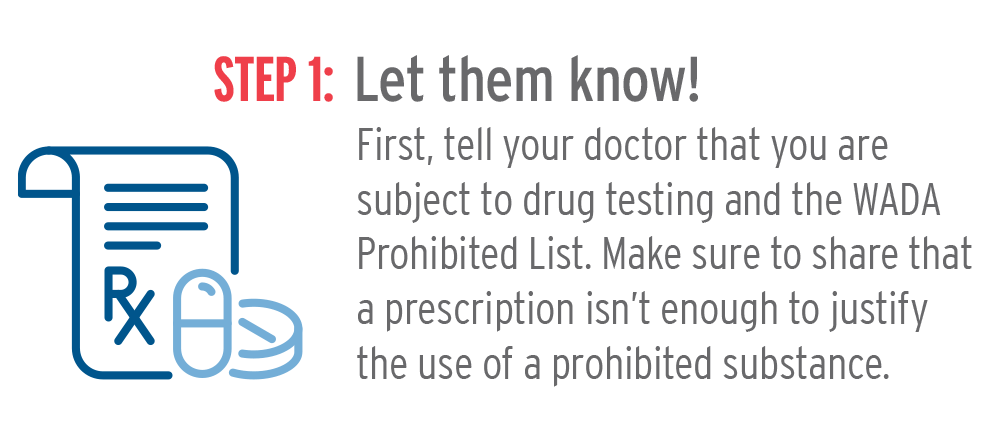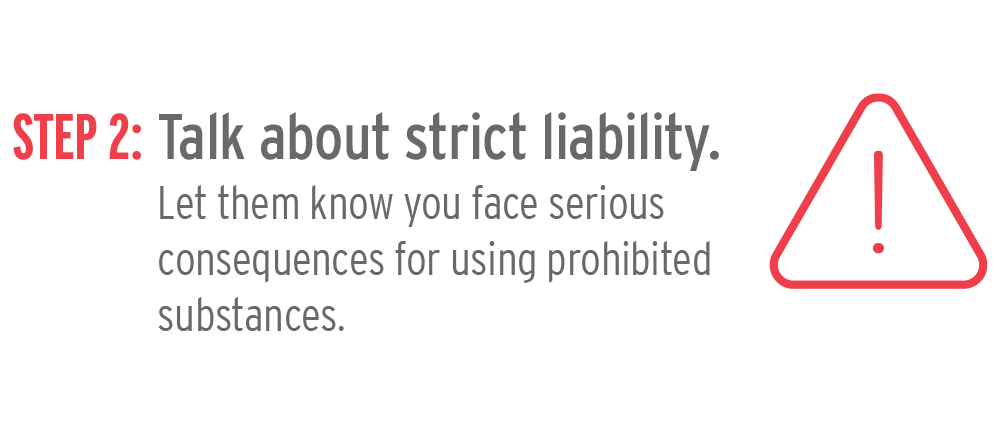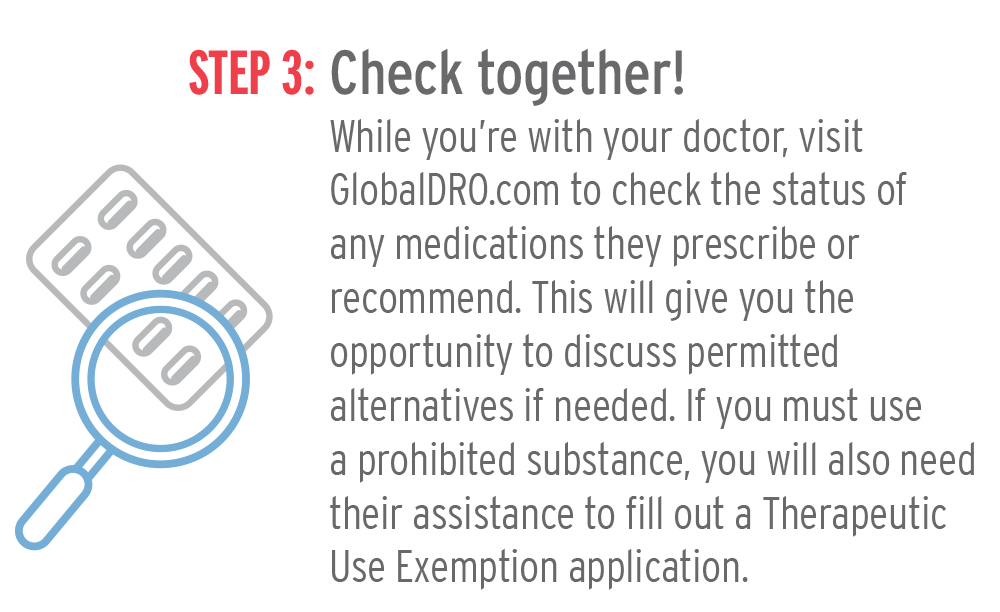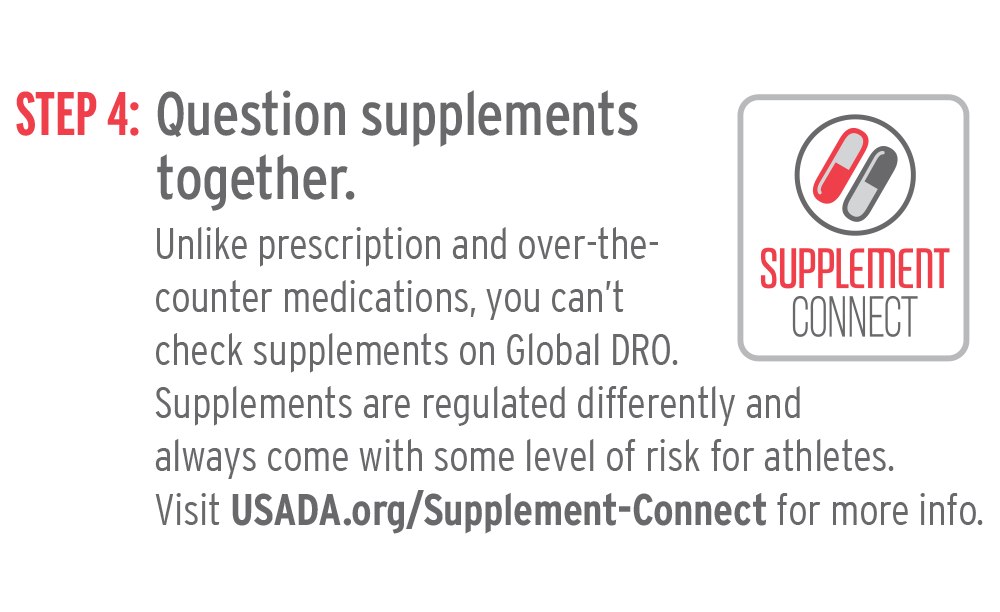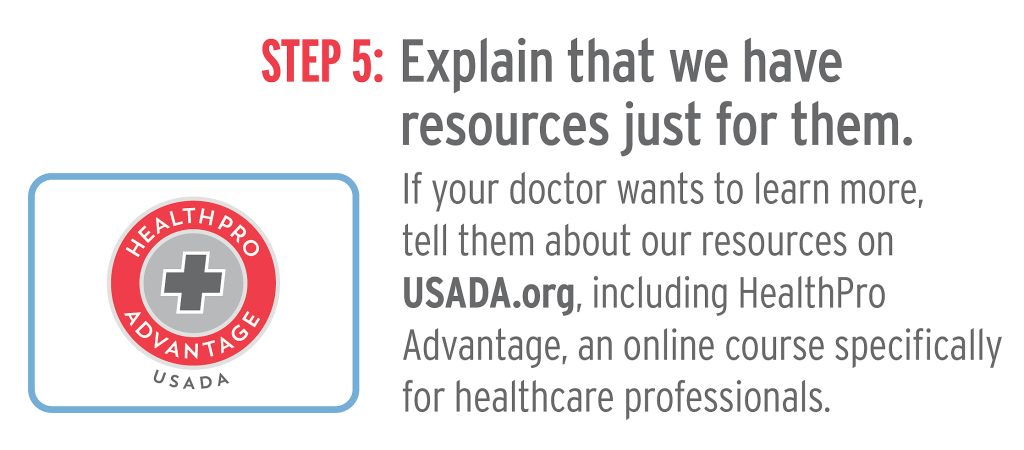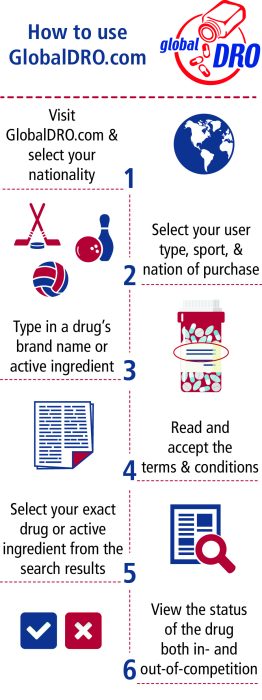
Have you ever accepted a substance without knowing its prohibited status?
It’s easy to assume that someone you trust – a doctor, a coach, a spouse – is going to understand and help you uphold your anti-doping responsibilities. Unfortunately, the trusted people in an athlete’s life are not always going to know or respect the rules as expected. And more importantly, the athlete is ultimately responsible for what goes on and in their body, even if a trusted person gives an athlete a prohibited substance without their knowledge.
So, when you find yourself in situations like these, remember this: Did you check though?
It only takes a few minutes to check medications and ingredients on GlobalDRO.com.

Why it matters: an athlete testimonial
Desmond Jackson thought he could trust his coach. They had been working together for years, developing a bond that felt more like family than professional mentorship. He was led to believe their values were the same.
At the 2021 U.S. Paralympic Track and Field Trials, the 22-year-old Jackson was accompanied by his coach as usual, and his thoughts were consumed by the anticipation of competing in an event where he could finally qualify for the postponed 2020 Paralympic Games in Tokyo. He was in a rush and already feeling the Minneapolis heat when his coach offered him a pill to help with his energy. Jackson took it, no questions asked. What happened that day would change the course of his athletic career and life.
Watch the video to learn more.
tools
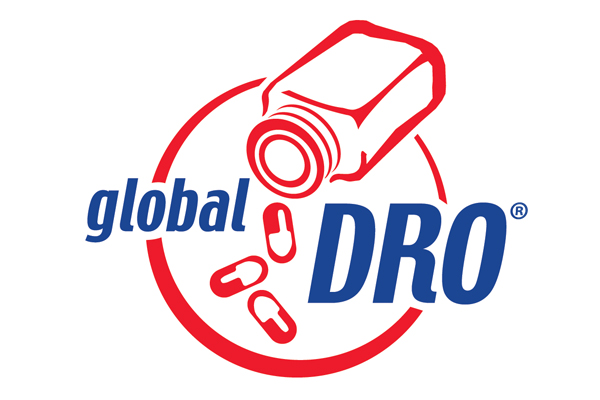
The Global Drug Reference Online (Global DRO) provides athletes and support personnel with information about the prohibited status of specific medications based on the current World Anti-Doping Agency (WADA) Prohibited List.
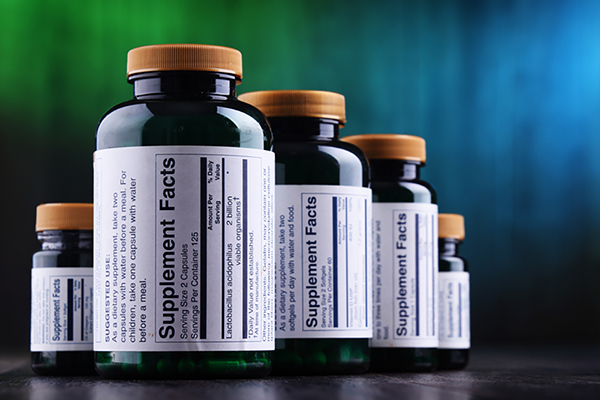
Unlike prescription and over-the-counter medications, you can’t check supplements on Global DRO. Supplements are regulated differently than medications and always come with some level of risk for athletes. Visit Supplement Connect for more info.

An athlete may apply for a Therapeutic Use Exemption (TUE) to use a prohibited medication or method for a specified time period. A prescription alone is not enough to justify a TUE, so athletes need to work with their physicians to provide the required documentation.
TIPS
related articles
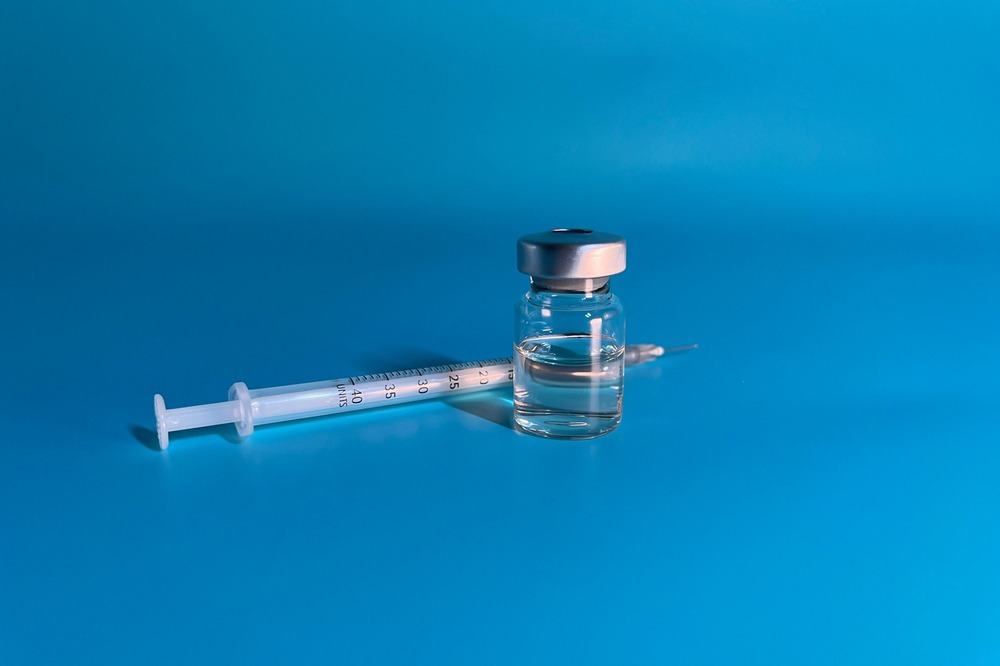
What is the MOTS-c peptide?
Athletes should be wary of experimental peptides, including the prohibited MOTS-c, which can be found on websites with the label “for research purposes only.”
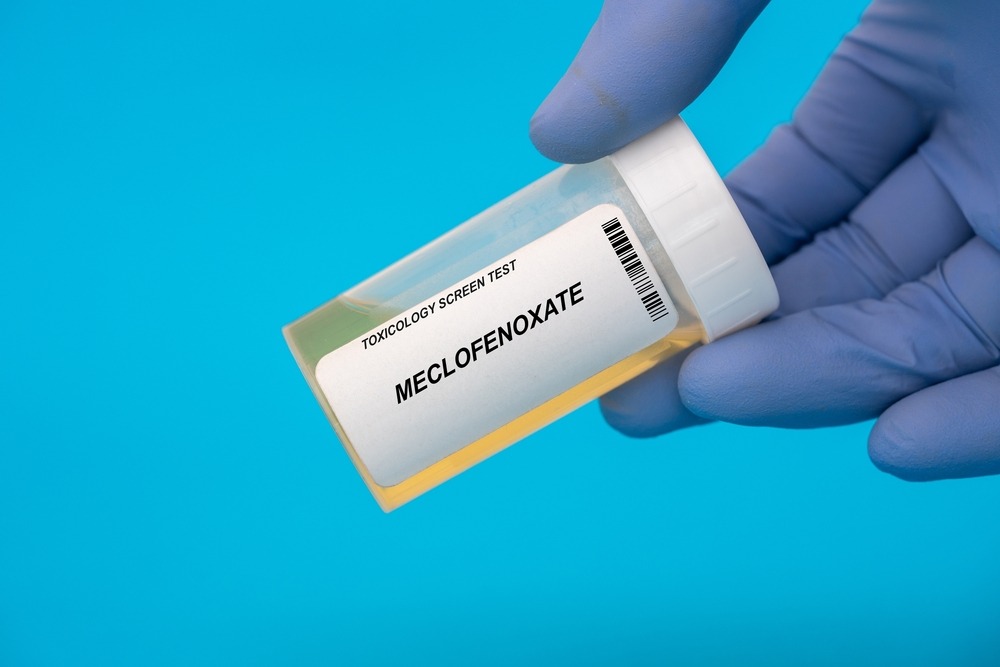
What Do Athletes Need to Know About Meclofenoxate?
Some supplement manufacturers look to increase the effectiveness and marketability of their products by using illegal substances, like meclofenoxate.

What Athletes Need to Know About the Dangers of Stopping Prescription Medication Before Competition
It can be risky from both an anti-doping perspective and a health perspective for an athlete to stop prescription medication before a competition.

What Athletes Need to Know about Collagen
Collagen supplements have become very popular in recent years, leading many athletes to wonder if they can use these products.

What Should Athletes Know About Emergency Care and Anti-Doping?
What should an athlete in the USADA testing pools do when a prohibited substance or method is necessary in the case of a medical emergency?

Supplement High Risk List: What are Regulatory Warnings?
Learn more about regulatory warnings on the dietary supplements featured on the Supplement Connect High Risk List.
Return to the Clean Sport Campaign landing page





